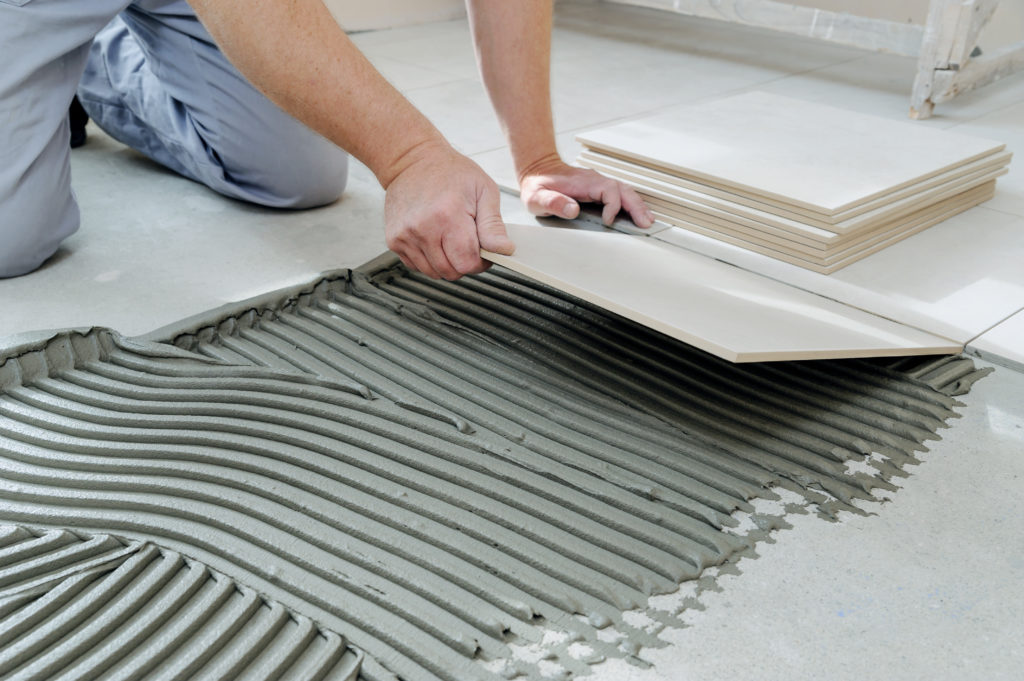2020-07-07
The purchase of new tiles is usually characterized by euphoria. The joy of bringing a breath of fresh air into one’s own four walls exceeds all the efforts involved. In the case of tiles, extremes are currently the trend. In modern bathrooms, large-format tiles are an important design element. A modern tile adhesive is needed to ensure that they stick to the wall for a long time.

Quite simply, it consists of cement, sand and various additives. To develop tile adhesives, the various raw materials are weighed in as powders in specific quantities and mixed homogeneously. Then the processing properties are tested on a sample surface and the adhesive is checked for its suitability for craftsmen. In addition, various tests are carried out in the laboratory, e.g. the adhesive tensile test, which is carried out after various stresses such as wetness or frost. Using a strip of mortar, the deflection and thus the flexibility of the adhesive is tested. During the industrial production of the tile adhesive, the different raw materials are mixed together and filled into bags.

Our customer is part of a globally active specialty chemicals company. Under the brand, solutions in the field of bonding ceramics and floor coverings for professional processors are offered. The product range includes tile adhesives, flooring adhesives, jointing and filling compounds. In the manufacturing and production process, the adhesives were previously filled via simple bag filters. Here there was a technology-related high consumption of filter bags and, due to the nature of the product, also a corresponding product rejection. The manual work involved in changing bags is not insignificant. For this application, Filtration Group Industrial has selected a modified AF 43 series automatic metal edge filter with edge perforated foil elements to replace the bag filter. Due to the nature of the product, a high-viscosity thixotropic material with changing dirt load, the filter elements are permanently rotated against 3 wipers each. The particles to be cleaned are gel-like agglomerates. The filter construction was chosen in such a way that the unit can be dismantled into several parts in order to ensure that the components can be cleaned as easily as possible.